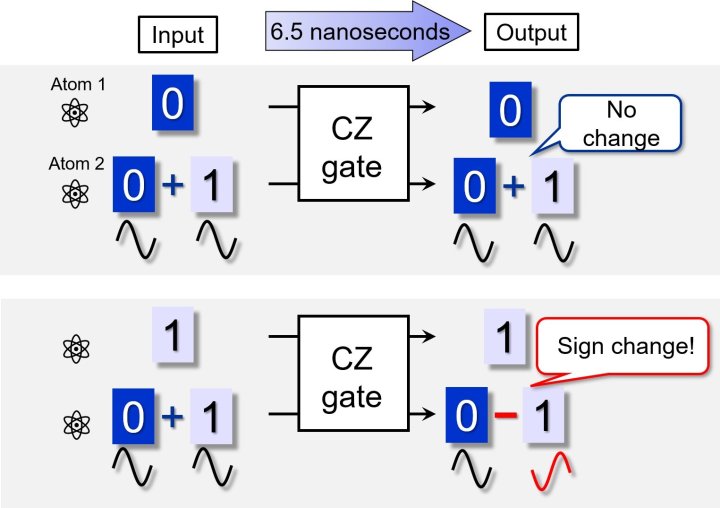Scientists just achieved a breakthrough in quantum computing | Digital Trends
A research team from the Japanese Institute for Molecular Science has now made a great stride in quantum computing, making it happen with the help of a two-qubit gate. A qubit is the quantum equivalent of a binary bit, which is a basic unit of information used in computing.
The team successfully managed to execute the world’s fastest two-qubit gate in just 6.5 nanoseconds. In the process, the researchers had to overcome some of the limitations linked to this kind of technology. However, there’s a catch — the method they used might be tricky to replicate in a less research-based environment.

Quantum computing is still somewhat uncharted territory, but it might be the gateway to solving problems that modern computers can’t tackle. It could also potentially speed up high-performance computing (HPC) tasks tremendously. While the potential is definitely there and tech giants such as IBM and Intel are tapping into it, the limitations are there, too, and this is why research teams all over the world continue to explore the subject.
The team of scientists from the Institute for Molecular Science, led by graduate student Yeelai Chew, assistant professor Sylvain de Léséleuc, and professor Kenji Ohmori, conducted the research and published their findings in Nature Photonics. The two-qubit gate operation they were able to execute is an early but important step. Tom’s Hardware was one of the first publications to detail the process after the initial article in Nature appeared online.
The researchers used lasers in order to drastically cool down two atom-qubits.
Qubits are the quantum equivalent of the bits we’re all familiar with from day-to-day computing. However, qubits come with an advantage — they’re not limited to a value of one or zero; instead, they can represent both one and zero. This makes them a lot more efficient and unlocks their capability to perform complex tasks in a much, much shorter timeframe. Unfortunately, qubits are quick to decohere, meaning that they no longer return accurate results.
A two-qubit gate operation requires the qubits to be entangled, and this entanglement is affected by various factors that can quicken decoherence. The issue of decoherence can be dealt with in two ways — the operations need to be performed much faster, before the qubits decohere, or the entanglement needs to last longer. The science team went with the first approach, which was to speed things up drastically — and that, they did, achieving a world record in the process.
The researchers used lasers in order to drastically cool down two atom-qubits made out of the element Rubidium. The temperatures hit close to an absolute zero, going as low as −273.15 degrees Celsius. These atoms were then secured within a micrometer of each other through the use of optical tweezers. Then, they utilized a laser to manipulate the qubits at 10 picoseconds intervals. A picosecond is the equivalent of one trillionth of a second.

Through the above steps, the researchers were able to successfully execute a quantum gate in just 6.5 nanoseconds, making it the world’s fastest two-qubit gate operation. The previous record was at 15 nanoseconds.
While this leap doesn’t mean that quantum computing will suddenly become widespread, it does mean that scientists are making great strides in that direction. Unfortunately, this type of technology might be difficult to replicate in an HPC setting, which is where it would be most commonly used.
The rubidium-atom qubits that were used by the researchers to execute this ultrafast qubit gate must be cooled close to absolute zero in order to work. Doing so can be possible in special cases, but realistically, most organizations would turn to a different solution until this can become easier to manage. On the other hand, even if this technology won’t become the go-to one day, the research is important as scientists continue to try to determine where exactly the future of computing lies.
Editors’ Recommendations
For all the latest Technology News Click Here
For the latest news and updates, follow us on Google News.

